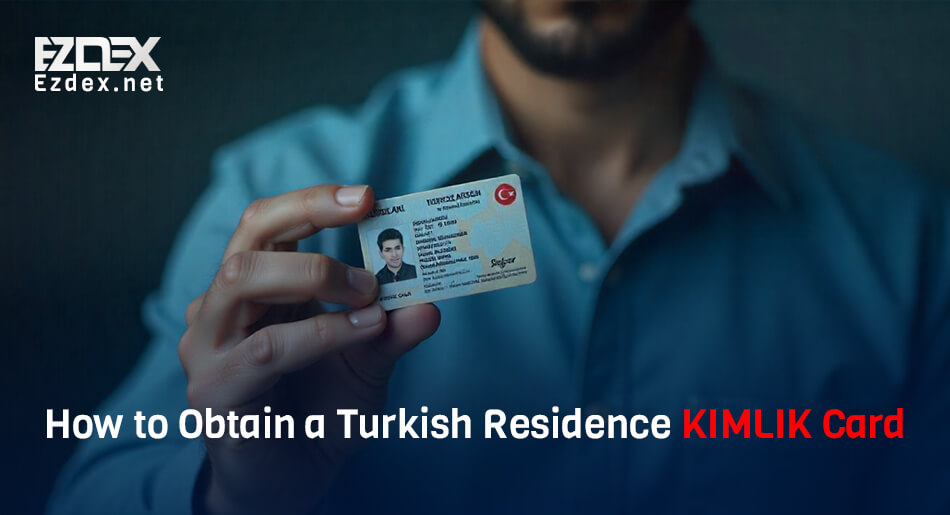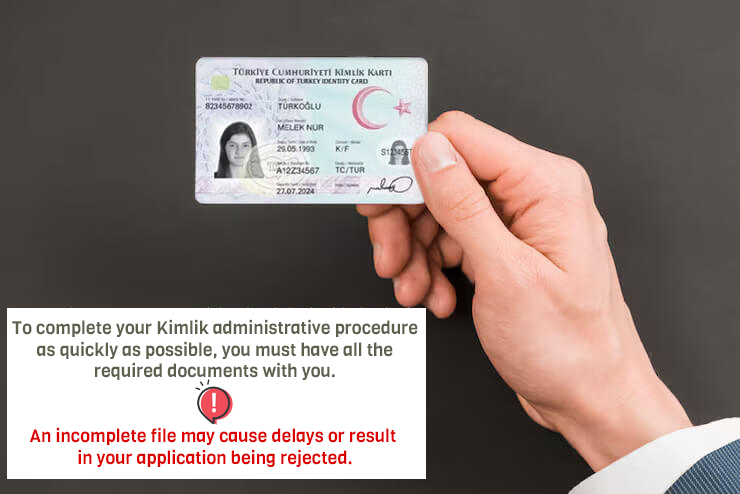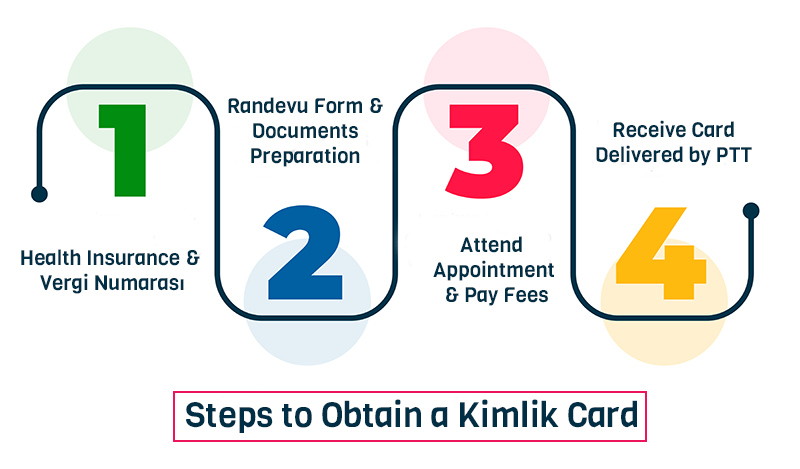How to Obtain a Turkish Residence Permit (Kimlik Card) Full Guide

Turkey has become a top destination for immigrants due to its strategic location and vibrant culture. The Turkish residence permit, known as the Kimlik card or Ikamet Kartı, is an official document allowing foreigners to stay legally in Turkey beyond the 90-day visa-free period. This comprehensive guide covers the definition, types, requirements, documents, costs, application process, renewal, benefits, and the latest 2025 updates, including stricter financial requirements and geographical restrictions. Whether you're seeking a short-term residence permit, family reunion permit, or Turkuaz card, this article provides everything you need to know to secure your Kimlik card in Turkey.
Table of Contents
- What is a Kimlik Card in Turkey and Why is it Important?
- Types of Turkish Residence Permits in 2025
- Benefits of Having a Turkish Kimlik Card
- Requirements for Obtaining a Kimlik Card in 2025
- Documents Needed for Turkish Residence Permit
- Step-by-Step Process to Obtain a Turkish Kimlik Card in 2025
- How Much Does a Turkish Kimlik Card Cost in 2025?
- How to Track Your Kimlik Card Application
- How to Renew a Turkish Kimlik Card
What is a Kimlik Card in Turkey and Why is it Important?
The Kimlik card (literally "identity card") serves as a national ID for Turkish citizens but refers to the residence permit for foreigners. Issued by the Directorate General of Migration Management (DGMM), it comes with an 11-digit Kimlik number starting with "99." This number acts like a national ID, enabling access to Turkey’s e-government services and other essential activities.
Without a Kimlik card, staying in Turkey beyond 90 days (visa-free) is illegal, risking fines (up to 100 TRY per day), deportation, or entry bans.
The importance of the Turkish residence card lies in its role in accessing government services such as banking, education, healthcare, and even driving, as it is one of the required documents for obtaining a driver’s license in Turkey. Under Law No. 6458 on Foreigners and International Protection, having a Kimlik card has been mandatory since 2013. In 2025, with the Turkish government focusing on attracting investors and professionals, the regulations have become stricter, but new opportunities—such as the Turquoise Card for highly skilled individuals—have also been introduced. If you live in cities like Istanbul or Ankara, obtaining a Kimlik card is the first step toward legal integration.
Types of Turkish Residence Permits in 2025
Turkey offers various residence permits based on the purpose of stay. In 2025, updates include geographical restrictions (1,169 neighborhoods closed due to high foreign populations exceeding 20%) and stricter financial requirements. Below is a comparison of Kimlik card types:
|
Permit Type |
Color |
Validity |
Eligibility |
Unique Benefits |
2025 Changes |
|
Short-Term (Tourist/Scientific/Property) |
Pink |
Up to 2 years |
Tourism with proof of 1.5x minimum wage ($825/month), property ownership ($50,000 in small regions, $75,000 in large ones), research, or business |
Unlimited entry/exit, school enrollment for kids |
Restrictions in closed areas, no tourist permit renewal without new justification |
|
Family |
Pink |
Up to 3 years |
Marriage to a Turkish citizen/resident, dependent children |
Citizenship after 3 years, family service access |
Proof of 33,156 TRY monthly income for sponsors |
|
Student |
Pink |
Duration of study |
University or educational program acceptance |
Part-time work, scholarships |
Health insurance exemption if under SGK |
|
Work |
Blue |
1 year (extendable to 5) |
Valid job offer |
Social insurance, citizenship after 5 years |
Priority for skilled professionals |
|
Long-Term |
Gray |
Indefinite |
8 years continuous residency without social aid |
Near-citizen rights |
Stricter integration proof |
|
Turkuaz |
Turquoise |
Permanent |
High investment ($400,000 for citizenship), elite professionals |
Unrestricted work, economic benefits |
Focus on attracting investors |
|
Humanitarian |
Unspecified |
Up to 1 year (extendable) |
Special cases (e.g., medical treatment, court orders) |
Temporary residency |
Case-by-case review |
|
Human Trafficking Victim |
Unspecified |
Up to 3 years |
Official confirmation |
Legal protection |
6-month extensions |
Benefits of Having a Turkish Kimlik Card
A Turkish residence permit simplifies life in Turkey. Key benefits include:
- Banking Access: Open accounts, get credit cards, and transfer funds.
- Public Services: Register utilities or home internet.
- Education and Healthcare: Free public schools and access to family doctors.
- Free Travel: Enter/exit Turkey without visa restrictions.
- Driving: Convert your foreign driver’s license to a Turkish one.
- Free Language Classes: Access ISKUR or ISMEK Turkish courses.
- Schengen Visa Advantage: Higher approval odds.
- Legal Security: Avoid fines for overstaying.
- Citizenship Pathway: Qualify for citizenship after 5-8 years.
In 2025, economic benefits, especially for Turkuaz card holders, have expanded, offering greater access to Turkey’s job market.

Requirements for Obtaining a Kimlik Card in 2025
To secure a Turkish residence permit, applicants must meet these conditions:
- Valid Purpose: Tourism (with financial proof), study, work, marriage, or investment.
- Health Insurance: Coverage for the entire residency period.
- Clean Record: No immigration violations or criminal history.
- Age and Status: Minimum 18 for certain permits.
- Sufficient Income: At least 1.5x minimum wage (approx. 25,503 TRY/month for individuals, higher for families).
- Valid Address: Outside the 1,169 restricted neighborhoods (e.g., certain Istanbul areas).
- Application Timing: You must apply within 90 days of visa-free entry.
Documents Needed for Turkish Residence Permit
The required documents for a Kimlik card application include:
- Valid passport (minimum 6 months validity).
- Completed randevu application form.
- Biometric photos (white background, 4x6 cm).
- Turkish health insurance (private or public).
- Tax number (Vergi Numarası).
- Notarized rental agreement or property deed.
- Address verification (from Nüfus Müdürlüğü).
- Proof of income (bank statement or sponsorship).
- Clean criminal record certificate.
- Birth certificate for children under 18.
- Payment receipts for card issuance and residence fees.
All documents must be translated into Turkish and notarized.
Step-by-Step Process to Obtain a Turkish Kimlik Card in 2025
The application process for a Turkish residence permit combines online and in-person steps:

- Purchase Health Insurance: Obtain Turkish health insurance covering your stay.
- Get a Tax Number: Acquire a Vergi Numarası for administrative tasks.
- Online Registration: Visit randevu.goc.gov.tr, select permit type, and complete the randevu form.
- Prepare Documents: Scan and notarize all required documents.
- Schedule Appointment (Randevu): The system assigns a date (up to 1 month in Istanbul).
- Attend Appointment: Submit documents and provide biometrics (e.g., fingerprints) if required.
- Pay Fees: Online or via bank.
- Receive Card: Delivered by PTT post (2-4 weeks).
Track your application via e-Devlet using the PTT code. The entire process takes 1-3 months.
How Much Does a Turkish Kimlik Card Cost in 2025?
Costs vary by nationality and permit duration. Approximate costs include:
🟩Health Insurance: 1,000-2,000 TRY (varies by age).
🟩Card Issuance Fee: 356-500 TRY.
🟩Residence Fee (Right of Soil): $80 for 1 year, $140 for 2 years.
🟩Notarization/Translation: Approx. 200 TRY.
As costs may rise with inflation, check goc.gov.tr for precise figures. Check Live Turkish Lira rates in the link.
How to Track Your Kimlik Card Application
To check your Turkish residence permit status, visit the DGMM website after your randevu appointment. Enter your details to view approval, rejection, or missing document notifications. If no update appears after 30 days, visit the Migration Office (Göç İdaresi) in person with your passport and appointment receipt.
How to Renew a Turkish Kimlik Card
Kimlik cards are typically valid for 1 year. Apply for renewal 60 days before expiration. Note that renewing under the same conditions (e.g., property-based permit via lease extension) is often not allowed. You must provide new justification (e.g., work or family). The renewal process mirrors the initial application but requires proof of updated conditions. Failure to renew incurs fines.
Read the latest news and announcements in this section.
Read the latest tutorials about payment service providers in this section.
You can access full guides and tutorial to use EZDEX services in this section.
Step by step tutorials and photo guides are available in this section.
Access the latest information about financial and economical matters in Turkey in this section.
Access the latest information about financial and economical matters in UAE in this section.
Explore expert guides, tips, and strategies for understanding and working with gold. Learn everything from basics to advanced knowledge.